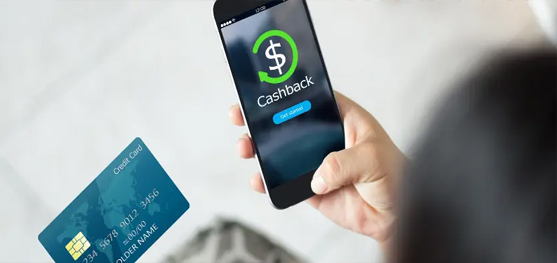Introduction
In an increasingly digital world, the way we handle money has transformed dramatically. One of the most popular tools for managing personal finances is Cash App, developed by Square, Inc. Launched in 2013, Cash App has rapidly gained traction, particularly among younger users, for its user-friendly interface and diverse functionality. This article aims to provide a comprehensive overview of Cash App, covering its features, benefits, security measures, fees, and more.
1. What is Cash App?

Cash App is a mobile payment service that allows users to send and receive money, pay for goods and services, and even invest in stocks and Bitcoin. The app is available for both iOS and Android devices, making it accessible to a wide audience. Users can create an account, link their bank accounts or debit cards, and start making transactions almost immediately.
1.1 Brief History
Originally launched as Square Cash, Cash App was developed by Square, Inc., a financial services and mobile payment company co-founded by Jack Dorsey, who is also known for his role as co-founder of Twitter. The app has evolved significantly since its inception, adding new features like Cash Card, Bitcoin trading, and investing capabilities.
2. Key Features
2.1 Sending and Receiving Money
One of the primary functions of Cash App is to facilitate peer-to-peer money transfers. Users can easily send money to friends or family by entering their phone number, email address, or $Cashtag, a unique identifier for Cash App users. Transactions are typically instantaneous, making it a convenient option for splitting bills or repaying loans.
2.2 Cash Card
Cash App offers a customizable debit card known as the Cash Card. This card allows users to spend their Cash App balance anywhere Visa is accepted. Users can personalize the card with their own designs and even link it to their Cash App account for easy access to funds.
2.3 Direct Deposit
Users can have their paycheck directly deposited into their Cash App account, making it easier to manage funds. Direct deposit is typically faster than traditional banking, allowing users to access their money more quickly.
2.4 Investing in Stocks
Cash App also provides users with the ability to invest in stocks. Users can buy fractional shares of popular companies, making it accessible even for those with limited funds. The investment feature is straightforward, allowing users to start investing with as little as $1.
2.5 Bitcoin Trading
For those interested in cryptocurrency, Cash App allows users to buy, sell, and hold Bitcoin. The process is seamless, and users can track their investments directly within the app. Cash App provides a user-friendly interface for those new to cryptocurrency.
2.6 Cash App Boost
Cash App offers a feature called Boost, which provides users with instant discounts at select retailers when they use their Cash Card. Users can choose from various Boost offers and activate them in the app before making a purchase.
3. Setting Up Cash App
3.1 Downloading the App
To get started, download Cash App from the Apple App Store or Google Play Store. Once downloaded, open the app to begin the account creation process.
3.2 Creating an Account
Users will need to provide their phone number or email address to create an account. After entering the required information, you will receive a verification code to confirm your identity.
3.3 Linking a Bank Account or Card
Once your account is set up, you can link a bank account or debit card. This step is essential for sending and receiving funds. Users can also add credit cards, although this may incur fees for certain transactions.
3.4 Choosing a $Cashtag
A $Cashtag is a unique identifier that allows others to send you money easily. Choose a $Cashtag that represents you, and ensure it’s easy for friends and family to remember.
4. Security Measures
4.1 Two-Factor Authentication
Cash App prioritizes user security and offers two-factor authentication (2FA). Users can enable this feature to add an extra layer of protection to their accounts. With 2FA, you will need to verify your identity using a second method, such as a text message, when logging in.
4.2 Security Locks
Cash App allows users to set up security locks that require a PIN or biometric verification to access the app. This measure helps protect your account from unauthorized access.
4.3 Fraud Protection
Cash App has a dedicated team to monitor transactions for fraudulent activity. Users can report any suspicious transactions through the app, and Cash App will investigate.
5. Fees and Costs
While Cash App offers many free features, some transactions may incur fees. Understanding these costs is essential for users.
5.1 Sending Money
Sending money from your Cash App balance or linked bank account is generally free. However, if you use a credit card to send money, a fee of 3% may apply.
5.2 Instant Transfers
If you want to transfer funds from your Cash App balance to your bank account instantly, a 1.5% fee will be deducted from the transfer amount. Standard transfers, which take 1-3 business days, are free.
5.3 Bitcoin Transactions
Buying or selling Bitcoin on Cash App incurs a fee based on market fluctuations. Users should be aware of these fees when trading cryptocurrencies.
5.4 ATM Fees
If you use your Cash Card at an ATM, you may incur fees. However, if you receive direct deposits of $300 or more per month, you can have ATM fees reimbursed.
6. Advantages of Using Cash App
6.1 User-Friendly Interface
Cash App’s intuitive design makes it easy for anyone to navigate, even those who are not tech-savvy. The straightforward process for sending money, making purchases, and investing is a significant draw for users.
6.2 Fast Transactions
Transactions on Cash App are typically instantaneous, allowing for quick exchanges of money. This speed is particularly beneficial for splitting bills or sending money in urgent situations.
6.3 Versatility
Cash App is more than just a payment platform; it offers various features, including investing, cryptocurrency trading, and a customizable debit card. This versatility attracts a broad user base.
6.4 Cash App Boost
The Boost feature allows users to save money while shopping at select retailers, enhancing the app’s value for everyday purchases.
7. Disadvantages of Using Cash App
7.1 Limited Customer Support
While Cash App does offer customer support, some users have reported difficulties in resolving issues quickly. The lack of a direct phone support option can be frustrating for those needing immediate assistance.
7.2 Fees for Certain Transactions
Although many transactions are free, fees can accumulate, especially when using a credit card for payments or opting for instant transfers. Users should be mindful of these costs.
7.3 Security Concerns
Despite robust security measures, no platform is entirely immune to fraud or scams. Users should remain vigilant and monitor their accounts regularly.
8. Cash App vs. Competitors
8.1 Venmo
Venmo, owned by PayPal, is another popular peer-to-peer payment platform. While both services allow users to send and receive money, Venmo has a stronger social component, allowing users to share transaction details with friends. Cash App, however, offers a broader range of features, including investing and Bitcoin trading.
8.2 PayPal
PayPal has been a leader in online payments for years. While it offers similar services, Cash App is often preferred for its simplicity and user-friendly mobile experience. PayPal, on the other hand, provides more robust e-commerce solutions.
8.3 Zelle
Zelle allows users to send money directly between bank accounts, making it a fast option for those with bank accounts that support it. However, Zelle lacks the investment and cryptocurrency features offered by Cash App.
9. Tips for Using Cash App Effectively
9.1 Keep Your App Updated
Regularly updating your Cash App ensures you have access to the latest features and security enhancements. Check for updates in the app store periodically.
9.2 Monitor Transactions
Regularly review your transaction history to identify any unauthorized activities. If you notice anything suspicious, report it to Cash App immediately.
9.3 Use Cash Card Wisely
Take advantage of the Cash Card and the Boost feature to save money on purchases. Customize your card for a personal touch and keep track of your spending.
9.4 Educate Yourself on Investing
If you’re new to investing, take the time to educate yourself about stock markets and cryptocurrencies before diving in. Cash App offers resources to help you get started.
10. Conclusion
Cash App has emerged as a popular financial tool for a reason. Its ease of use, diverse functionality, and emphasis on security make it an attractive option for managing money in today’s digital landscape. While it has its limitations and fees, the benefits often outweigh the drawbacks for many users. As with any financial service, it’s essential to stay informed and use the app wisely to maximize its potential.
Whether you’re looking to split a bill with friends, invest in stocks, or explore cryptocurrency, Cash App offers a versatile platform that meets a variety of financial needs. As it continues to evolve and add new features, Cash App remains a key player in the world of mobile finance.



